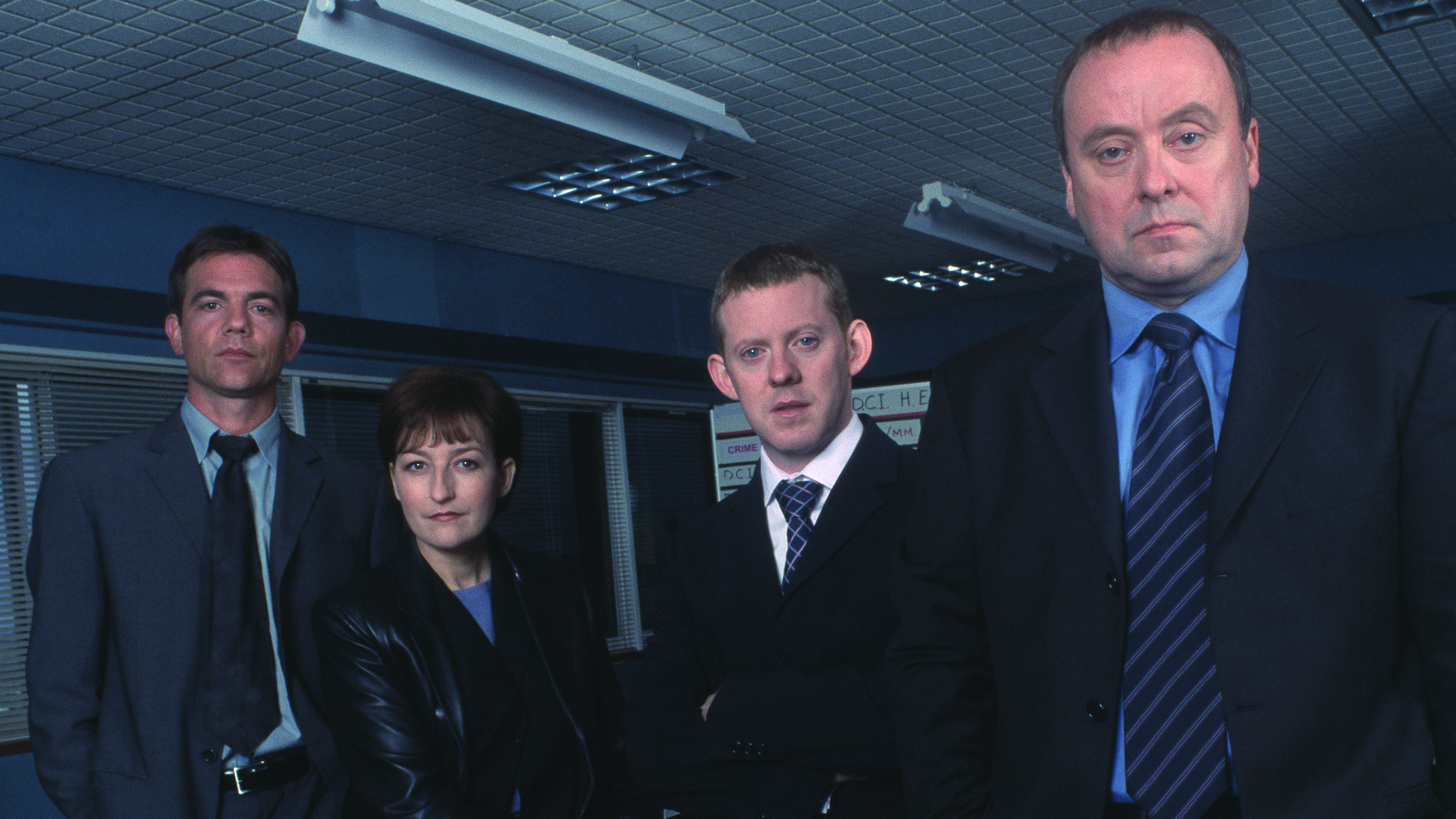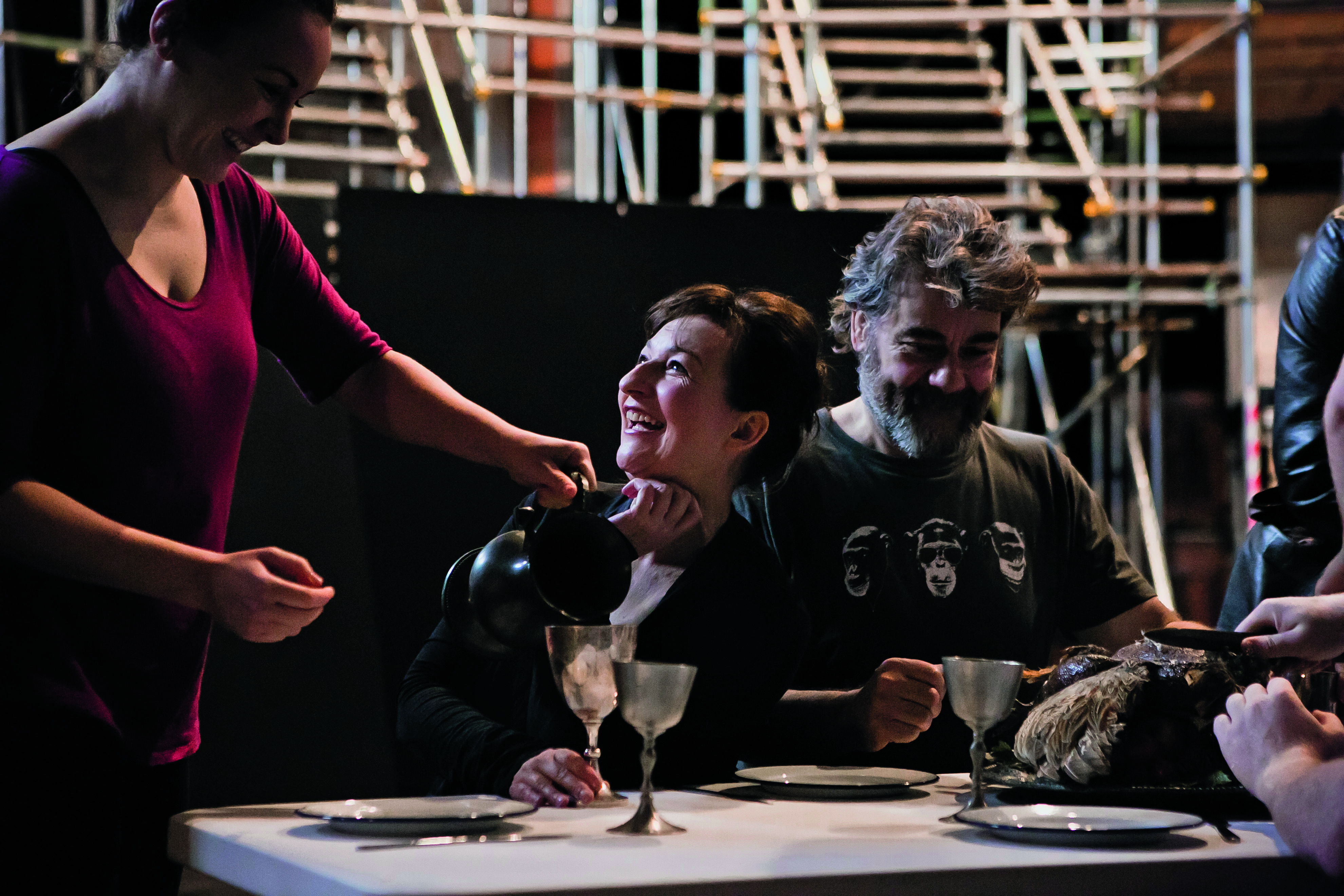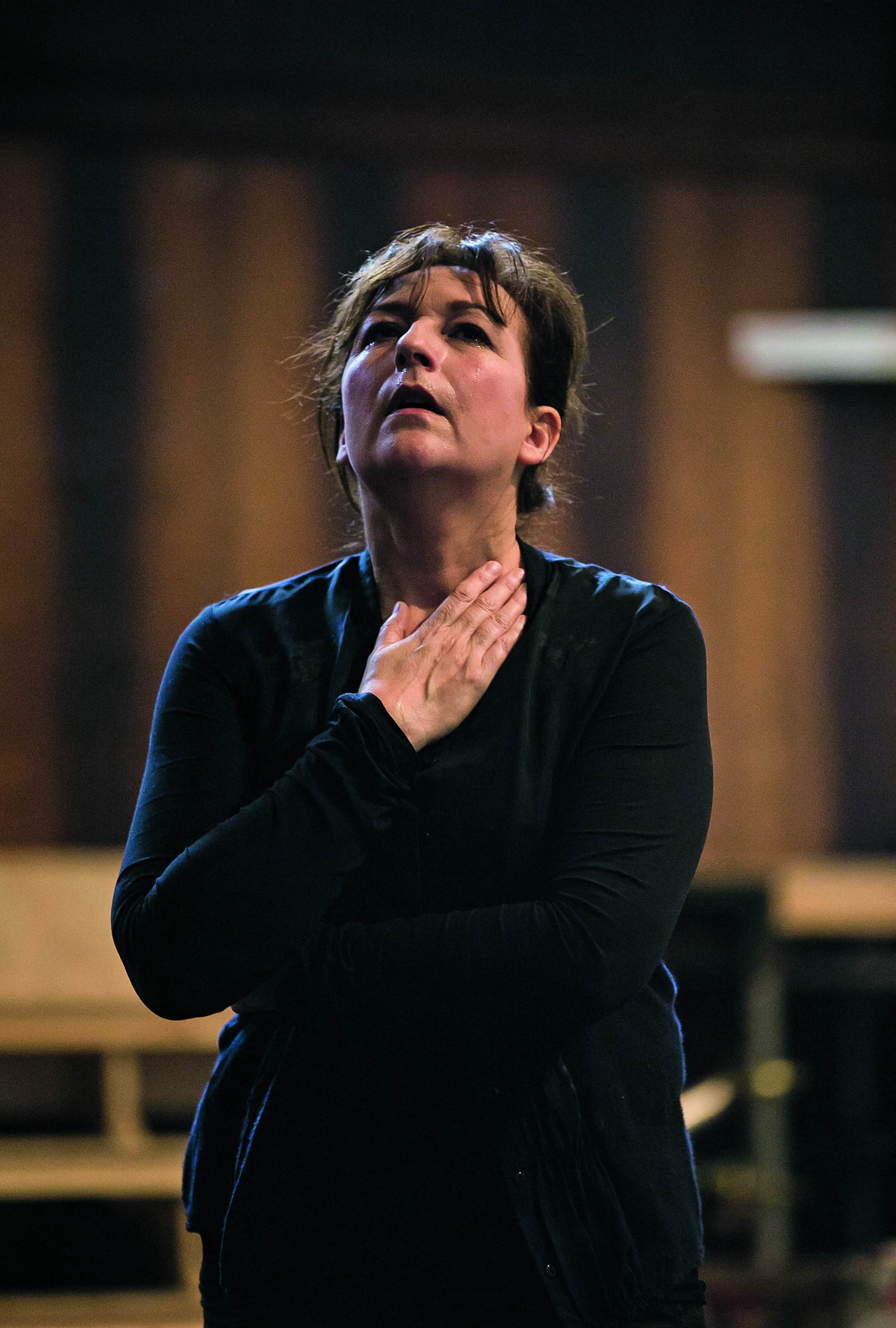When Taggart, the long-running detective series that subsidised Scotland’s theatrical community for many years, came to an end in 2010, Blythe Duff faced a choice.
After a double-decade shift in the long leather coat of DI Jackie Reid, should she sit back and live off the repeat fees? Or was it time to hang up her ID badge with pride and see what else was out there?
She chose option two.
It turns out that, when the network finally decided there had been quite enough murder and mayhem on the streets of Glasgow, Duff was happy to let the character go. There is nothing in her career – or her life – that she regrets, and ‘Jackie Reid sits in the middle of the past 51 years like some big incredible gift’.
In an interview with Scottish Field published in 2014, she was spending time on stage in Edinburgh and London, playing a central role in the Edinburgh International Festival’s James plays – a trilogy of works by Aberdeen playwright Rona Munro about three generations of Stewart kings who ruled Scotland in the 15th century.
The Taggart legacy was partly financial. ‘I couldn’t have afforded to do theatre for the past four years if I hadn’t had the backing the series brought me,’ she says during a break in rehearsals for James I.
‘When people ask if I miss the show, I tell them I don’t but my bank manager does. I was on TV when it paid a good wage, had brilliant repeat fees and the contract stated the amount of work you had to do.’

Blythe Duff and her co-stars in series 19 of Taggart
Thanks to the miracles of digital television, DI Reid et al are still sorting out the drugs neds of Govan and the dodgy moneylenders of Easterhouse on the Alibi channel but the returns are, she laughs, ‘getting thinner’.
Happily, she and her husband Tom, a former police officer, were ‘sensible’ about money when they had it. The actress’s mother, who brought up her kids in East Kilbride without having much of the folding stuff to splash around, describes this as ‘not going off and buying fur and diamonds’.
Duff waves her hand across the room, a dingy production office decorated in the style of an unloved student flat. ‘Could you imagine me walking about Govan in furs? My mother has this notion of an actress who would swan around, Greta Garbo style, dragging her fur coat behind her.’
In fact, Duff is wearing stretchy workout trousers and trainers. She was in Film City, the media hub in the former Govan town hall, in a street where a fur coat would definitely stand out among the shell suits. There, amid the swirly carpets and crumbling civic grandeur, James I is taking shape.
It’s heavy physical work, which explains the choice of wardrobe. A huge wooden crate in the hall outside the main hall is stamped with the National Theatre of Scotland logo and bears the legend SWORDS.
Isabella Stewart, the woman Duff plays in James I and James II, is, the actress says with relish, ‘a bad bitch’. She has been holding the throne of Scotland with her husband, Murdoch Stewart, for 18 years. ‘All of a sudden James I is coming up to Scotland to be crowned – you can imagine her nose is a wee bit out of joint.’
The James plays are, she says, ‘gory, gutsy, unflinching, quite raw’. What they are not is fusty or antiquated. They may be set in the 15th century but these are ‘not going to be dusty, dry history plays’. The language is not that of Shakespeare or Chaucer.

Blythe Duff rehearsing James I in 2014 (Photo: Eoin Carey)
‘It’s very accessible with lots of great music, lots of great movement, probably everything you would expect from the National Theatre of Scotland. It’s the kind of theatre I enjoy watching so I like being part of that as well.’
Even when it involves getting her kit off? The Edinburgh International Festival programme promises, tantalisingly, strong language and nudity. Is Duff ready to slip out off her tartan plaid in front of the audience?
She laughs again. ‘I was told it was behind a curtain. I agreed to this before I knew people were going to be actually on stage.’ There will be 100 of them up there with the cast at the Festival Theatre.
How is she feeling about it now? She snorks. ‘I don’t know yet. We haven’t rehearsed that bit.’
Should she need to have words on the subject with Laurie Samson, who’s directing the trilogy, Duff won’t shy away from the challenge.
Battling with the network, defending her character throughout the Taggart years, has left her with gumption to spare.
‘They would say, “We don’t want to go home with the characters,” so it would be all plot, plot, plot, detectives and blood,’ she recalls. ‘Then it would be, “No, we want to see them in their homes.” Credit to the network for sustaining it for so long, and for allowing the character to be what she was, but occasionally they wanted her to wear a pink fluffy jumper.’

Blythe Duff rehearsing for James I in 2014 (Photo: Eoin Carey)
Duff was not having it. ‘This was before it became quite hip to be dark and brooding. Jackie Reid didn’t smile an awful lot – that’s quite normal for a woman whose job is stepping over dead bodies. I fought through that with as much integrity as I possibly could.’
The steely heart that beat beneath DI Reid’s leather coat is what makes Duff such a gift for the casting director looking for, say, a child murderer (in the play Iron) or the daughter of a Glasgow gangster (last year’s Fringe hit Ciara). Or a 15th-century bad bitch.
‘I’ve got a strong character,’ Duff says thoughtfully. ‘I’ve always been a strong, independent soul, but I’m also incredibly emotional.’ This, she reckons, belies what she calls the ‘gird your loins’ thing about her. That strength is never far from the surface. Suggest that these fantastic, juicy, post-Taggart theatrical roles have fallen into her lap and be prepared to encounter DI Reid’s prison yard stare. ‘It has been all of my own making,’ she says.
‘I needed to remind myself why I want to be in the business, not because I was disenchanted but because I wanted to do more than 21 years of Taggart. I needed to make this happen. I could just sit back and think, I’ve got my nice car and my nice house, my kids are a wee bit older now, I wonder if I should go on holiday.
‘I can’t do that. It’s not me, and my husband knows it’s not me. I need to be stimulated in that way and I need to have a job ahead.’
Her sparkling new career, with two awards for best actress from Scotland’s theatre critics, shows that her strategy has worked. And she will continue to make it work as long as she can, and keep on proving that she has the right to be on the stage.
‘There are people I’m working with on this play whose TV screens I’ve been on since they were three. I can’t expect them to think about me as anything other than Jackie Reid.’
- This feature was originally published in 2014.
TAGS

